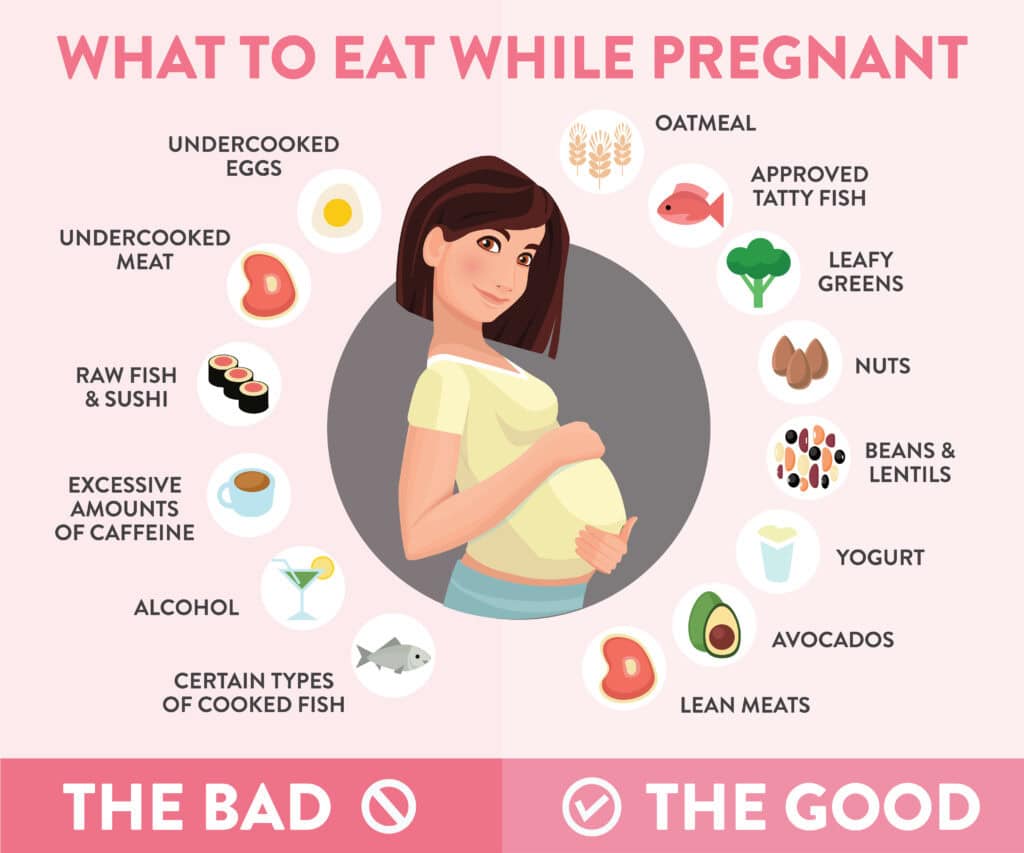
Pregnancy is a time of incredible transformation for both the body and mind. It’s also a period when health and nutrition become even more important. One dietary approach that can make a big difference in both your health and your baby’s development is adopting a low sugar diet in pregnancy. This goes beyond reducing sweets; it’s about making smart food choices to support balanced blood sugar, reduce potential risks, and promote long-term health for both you and your little one.
In this article, we’ll explore five significant benefits of a low sugar diet in pregnancy, from preventing gestational diabetes to giving your baby the best start in life.
Table of Contents
1. Prevent Gestational Diabetes with a Low Sugar Diet in Pregnancy
Gestational diabetes is a type of diabetes that only develops during pregnancy, affecting around 6-9% of pregnant women. If left unmanaged, it can lead to complications for both mother and baby. Adopting a low sugar diet in pregnancy can play a pivotal role in keeping blood glucose levels steady, thereby lowering your risk of developing this condition.
Why a Low Sugar Diet in Pregnancy Matters
High sugar intake can cause blood sugar spikes, straining your body’s ability to produce enough insulin. This is particularly concerning during pregnancy, when hormonal changes already impact insulin sensitivity. By focusing on low-glycemic foods, such as whole grains, vegetables, and lean proteins, you help maintain steady blood sugar levels, which supports both you and your baby.
Tips for Managing Sugar Intake While Pregnant:
- Opt for high-fiber carbs like whole grains, beans, and veggies instead of processed foods.
- Avoid sugary beverages, which can cause sudden spikes in blood sugar.
- Snack on foods rich in protein and healthy fats to promote satiety and prevent sugar cravings.
2. Low Sugar Diet in Pregnancy for Better Fetal Health
Did you know that the diet you follow during pregnancy can have long-lasting effects on your child’s health? Studies have shown that children born to mothers with high sugar intake during pregnancy may be at a higher risk of developing obesity and Type 2 diabetes later in life. By following a low sugar diet in pregnancy, you’re setting up your baby for a healthier future.
Benefits of a Low Sugar Diet for Baby
Keeping blood sugar levels stable by managing sugar intake helps create a healthier environment for fetal development. This can positively impact the baby’s metabolic health, reducing the risk of future diseases. Researchers have found that maternal nutrition directly influences fetal development, meaning your diet plays a preventive role in your baby’s long-term health.
Key Benefits for Baby:
- Lower likelihood of excessive birth weight, making labor and delivery easier.
- Reduced risk of childhood obesity and metabolic issues.
- Healthier blood glucose levels from birth, supporting balanced weight and growth.

3. Maintain Energy Levels with a Low Sugar Diet in Pregnancy
Pregnancy is exhausting, and energy management is crucial. Consuming a diet high in added sugars can cause fluctuating energy levels throughout the day. High-sugar foods provide a quick burst of energy, but it’s often followed by a crash, leaving you feeling drained and craving more sugar. A low sugar diet in pregnancy can help you maintain stable energy levels, supporting a smoother pregnancy.
How a Low Sugar Diet Supports Consistent Energy
Low sugar diets focus on steady energy by avoiding rapid spikes and drops in blood sugar. Including complex carbohydrates like quinoa, oats, and sweet potatoes, paired with protein and healthy fats, can keep your energy steady throughout the day. This stable energy helps you feel better physically and emotionally, improving mood stability—vital as your body undergoes numerous changes.
Healthy, Low-Sugar Snack Ideas:
- Greek yogurt with a handful of berries
- Sliced apple with almond butter
- Cottage cheese with cucumber and cherry tomatoes
4. Control Weight Gain with a Low Sugar Diet in Pregnancy
While gaining weight during pregnancy is both normal and necessary, excessive weight gain can increase the risk of complications such as high blood pressure, preeclampsia, and postpartum weight retention. A low sugar diet in pregnancy can help you achieve a healthy weight gain trajectory, aligning with recommended guidelines based on your body type and health history.
The Role of Low Sugar in Pregnancy Weight Management
When you reduce sugar intake, you’re less likely to consume empty calories, which can contribute to unwanted weight gain. Instead, you’ll be eating meals rich in nutrients, focusing on whole foods that support both your and your baby’s needs. This makes it easier to maintain a balanced diet without feeling deprived.
Low Sugar, High Nutrient Foods to Include:
- Leafy greens, like spinach and kale, which are high in folate and iron.
- Whole fruits, such as apples and pears, which contain natural sugars balanced by fiber.
- Healthy fats, including avocado, nuts, and seeds, to promote satiety and nutrient absorption.
5. Reduce Delivery Complications with a Low Sugar Diet in Pregnancy

High sugar intake during pregnancy can increase the risk of complications during delivery, such as high birth weight, which can make labor more challenging. By adopting a low sugar diet in pregnancy, you can help lower the chances of your baby having a high birth weight, ultimately reducing the need for a C-section and other delivery complications.
How a Low Sugar Diet in Pregnancy Supports a Smoother Delivery
A low sugar diet promotes a healthier pregnancy overall, reducing your baby’s risk of developing chronic conditions, such as obesity or Type 2 diabetes, later in life. Balanced sugar intake supports both you and your baby’s health, contributing to a smoother, less complicated delivery.
Practical Tips for a Low Sugar Diet in Pregnancy:
- Choose water or unsweetened beverages over sugary drinks.
- Be mindful of hidden sugars in processed foods by checking ingredient labels.
- Incorporate more whole foods in your diet, reducing reliance on refined sugars.
Additional Tips for a Successful Low Sugar Diet in Pregnancy
1. Include More Fiber-Rich Foods
Fiber helps slow the absorption of sugar, keeping blood glucose levels stable. Good options include vegetables, legumes, and whole grains.
2. Opt for Natural Sweeteners
When you crave sweetness, consider natural options like fresh fruit or a small amount of honey instead of processed sugars.
3. Plan Balanced Meals
Incorporate protein, healthy fats, and complex carbs in each meal to help curb sugar cravings. Balanced meals help you feel satisfied and maintain a healthy diet.
FAQs
Is a low sugar diet in pregnancy safe for all pregnant women?
Yes, a low sugar diet is generally safe and recommended for most pregnant women. However, always discuss any dietary changes with your healthcare provider to ensure it’s right for your individual needs.
What are the best foods for a low sugar diet in pregnancy?
Leafy greens, lean proteins, whole grains, legumes, and low-sugar fruits like berries are excellent choices.
How can I reduce sugar in my diet without feeling deprived?
Focus on balanced meals with fiber, protein, and healthy fats, which help curb sugar cravings. Opt for natural sweetness from fresh fruit rather than processed sugars.
Conclusion
Choosing a low sugar diet in pregnancy can have a profound impact on your health and your baby’s future well-being. By reducing sugar intake, you help prevent gestational diabetes, maintain steady energy, promote healthy weight gain, and reduce delivery complications.
Get more information
Here are three reliable sources that discuss the benefits of a low-sugar diet during pregnancy:
- American Diabetes Association (ADA) – This site offers information on how to manage blood sugar levels during pregnancy, especially for those with or at risk for gestational diabetes. It highlights the role of diet in managing blood sugar and reducing the risk of complications. Visit ADA’s Gestational Diabetes Guide for more details.
- Sheffield’s Sweet Enough – This site discusses the importance of reducing sugar intake during pregnancy to support a balanced diet and minimize risks like gestational diabetes. It also provides practical tips on lowering sugar consumption and choosing nutrient-rich foods to support both maternal and fetal health. Learn more at Sheffield’s Sweet Enough.
- UCSF Health – UCSF Health provides dietary recommendations for pregnant women managing blood sugar, particularly with gestational diabetes. It explains how a balanced, low-sugar diet can help maintain stable blood sugar levels and supports healthy fetal development. You can find detailed dietary guidelines on UCSF Health’s page.
Read more
- 8 Essential Tips for Tuberculosis Awareness and Prevention: Protect Yourself and Others
- 7 Essential Tips on how to Prevent Strokes: Why Tracking Blood Sugar Early Can Save Your Life
- The Growing Threat: What’s Driving Rising Cancer Rates in India?
- What is Diphtheria? 5 Essential Insights into the Symptoms, Causes, and Life-Saving Treatments



